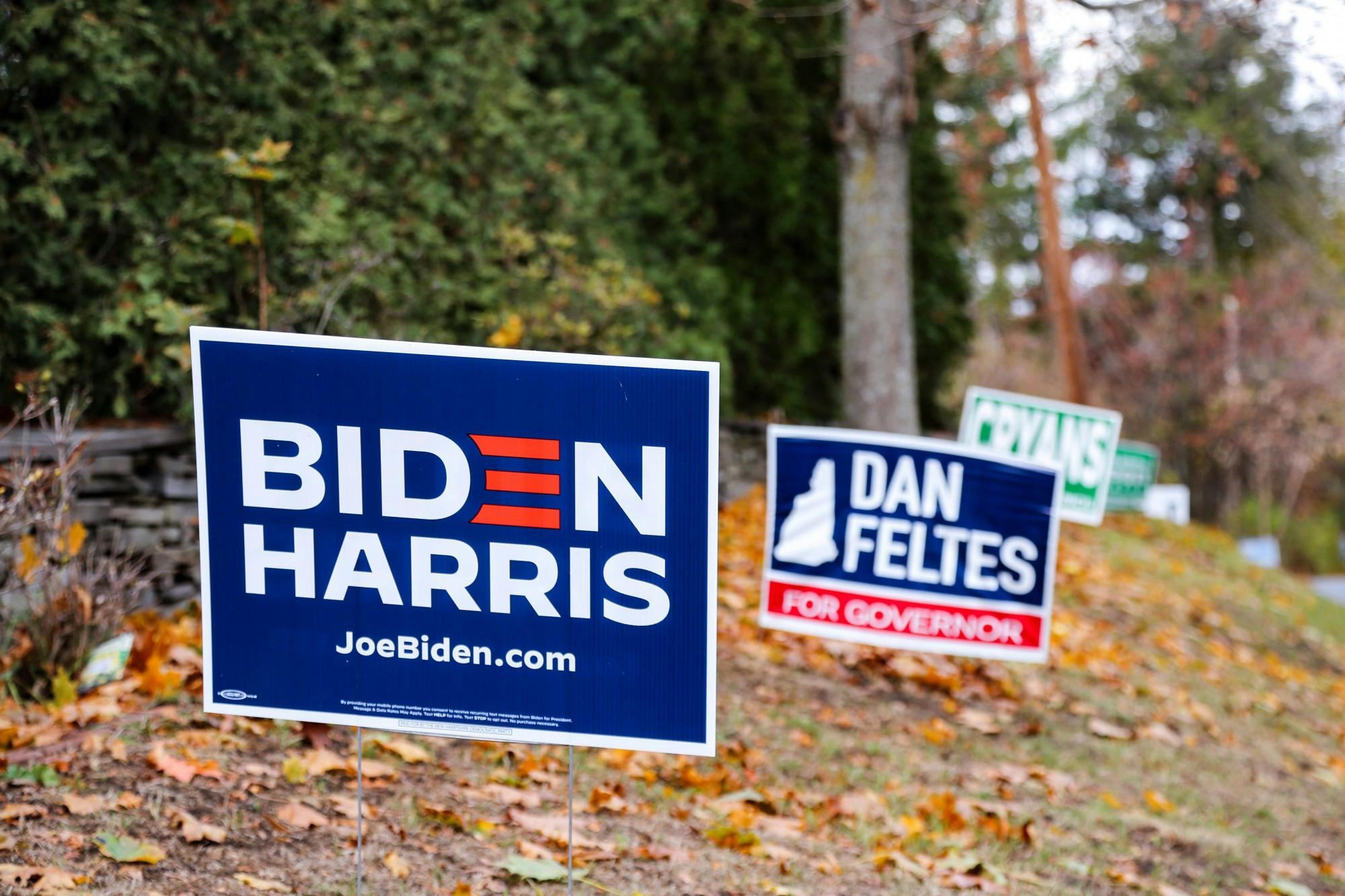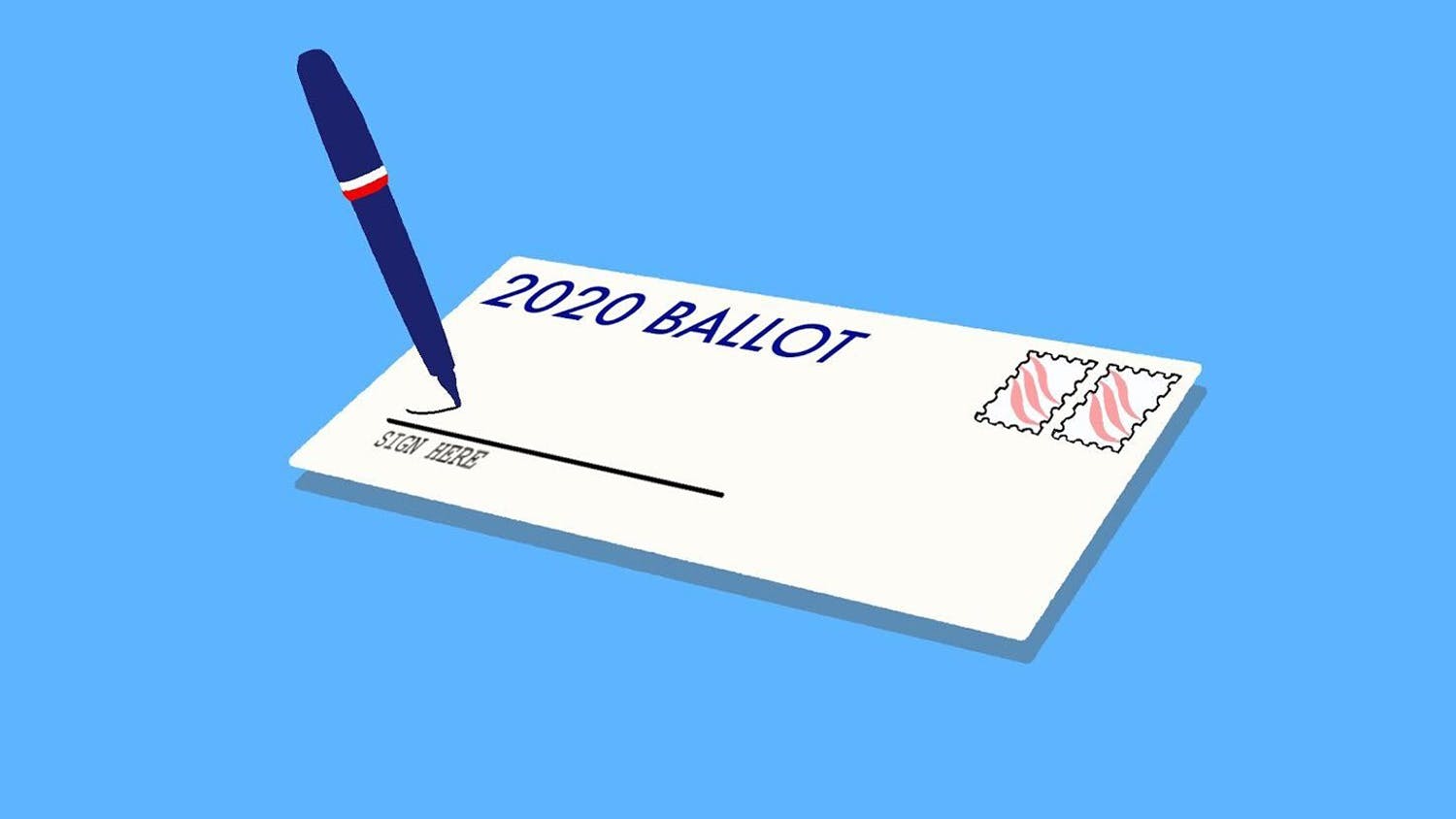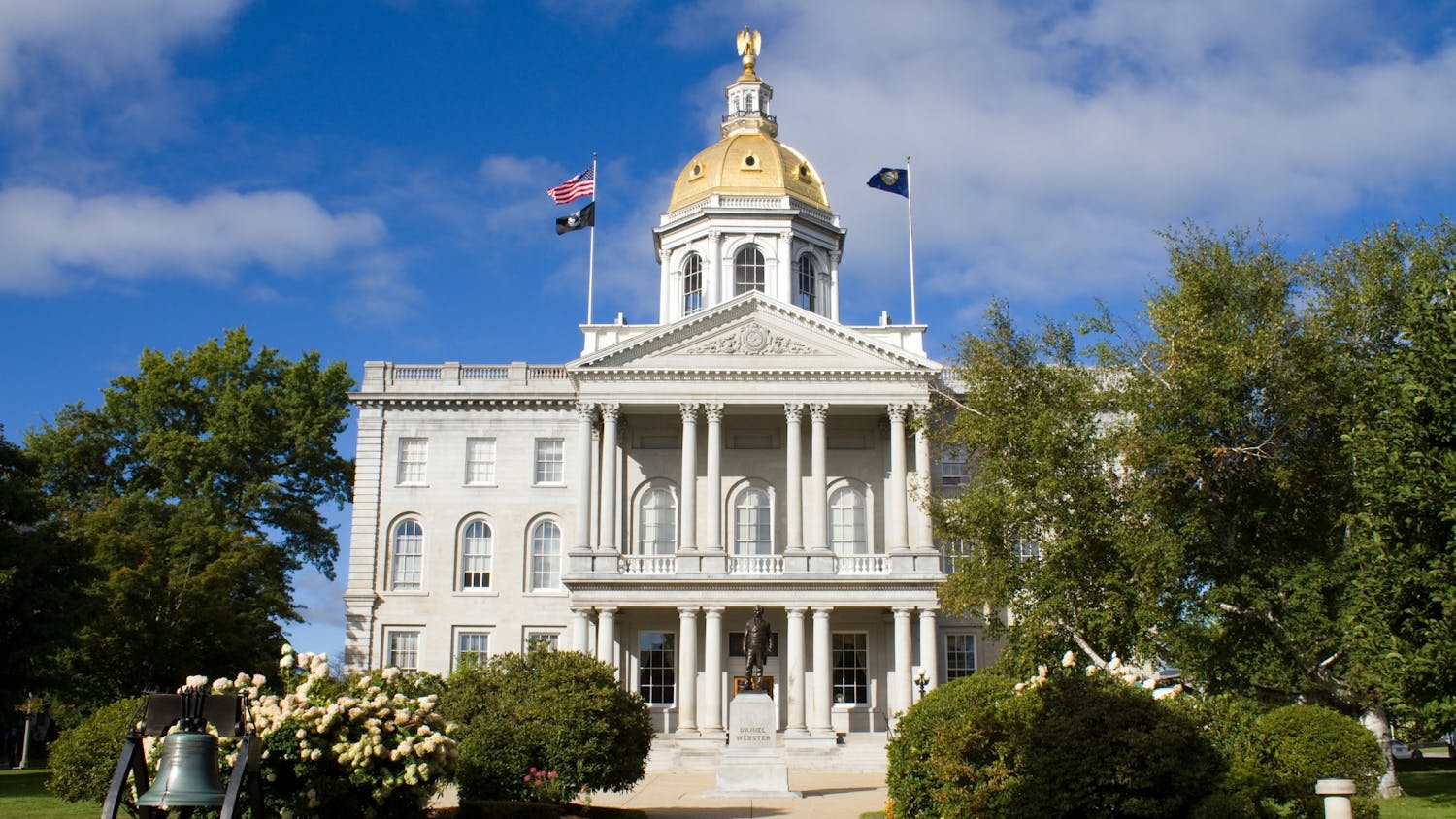After Hillary Clinton defeated Donald Trump by a razor-thin 0.3% in New Hampshire during the 2016 presidential election, Democrats are hoping for a wider margin of victory this year. Former Vice President Joe Biden currently leads in state polling averages by roughly 11 points. Still, experts say, anything could happen today in New Hampshire, a state known for its swing state tendencies and a “live free or die” independent streak.
If Biden wins New Hampshire this year, his victory will mark the fifth consecutive Democratic presidential nominee to win the state. Barack Obama won the Granite State by 5.8% in 2012 and 9.5% in 2008, and John Kerry won it by 1.4% in 2004. In 2000, Republican George W. Bush won New Hampshire by 1.3%, and the state’s four electoral votes were a deciding factor in the national outcome.
New Hampshire has historically been important to win but difficult to forecast — undeclared or independent voters make up 42% of New Hampshire’s voters, higher than the national average. Ari Garnick ’24, a lifelong New Hampshire resident currently registered as an independent, said that in New Hampshire, people with all different political views are able to feel “legitimate.” He added that a lot of New Hampshire residents vote for “person and not party.”
Government professor and presumptive state representative-elect Russell Muirhead noted that in a swing state, victories are often decided not by partisan alliances but by individual preferences.
“Once you control for all the big factors, then it comes down to the individual candidates and the quality of the campaigns they run,” he said.
Muirhead said that winning in swing states like New Hampshire typically comes down to “persuading that independent voter who might lean one way or another,” while in other states politicians may be focused on increasing voter turnout within their bases.
Brennan Ward, a political strategist and vice president of Portsmouth-based public relations and political consulting firm Novus Public Affairs, defined New Hampshire as a “retail politics state,” where grassroots campaigning can influence elections by 2 to 3%. Considering the small margins by which candidates have won in previous election years, that 2 to 3% can make a critical difference.
According to Ward, in a state where politics are not entirely defined by party, voters tend to ask themselves, “Do I like them? Would I have a beer with them?”
In this regard, Trump may have an advantage, Ward said. Trump has held three rallies in New Hampshire during the general election campaign, whereas Biden has not visited the state since before the primary.
Muirhead also commented on the influence that a small number of swing state votes can have, citing the 2000 election.
“If Al Gore had won New Hampshire, he would not have needed to win Florida to win the Electoral College,” Muirhead said. “He was 7,000 votes away from a victory in New Hampshire.”
Both Ward and Garnick emphasized that New Hampshire voters’ unique values make results in the state difficult to forecast. Ward said that Trump’s ability to engage voters may be an “x-factor” in this election. As a young voter, Garnick also highlighted Trump’s individuality, arguing, “this isn't an election of Democrat versus Republican. This is a true election of Democrat versus Trump.”
Ward also highlighted the uncertainties created by an atypical election season. The COVID-19 pandemic could impact the length of lines at polls, and college students going to school remotely have had to take the time to submit absentee ballots, making voter turnout efforts more important than usual.
Speaking from his experiences in New Hampshire and his knowledge of the state, Garnick said that he sees “no path for a Trump victory in New Hampshire,” which he considers positive. Ward, however, stressed that although Biden maintains a strong lead, New Hampshire could still swing either way this year.
“Anybody that will tell you that they know the results is probably kidding themselves, because [Trump] could win, Biden could sweep,” he said. “It’s a total unknown at this point, and we will see once the final votes are cast.”




